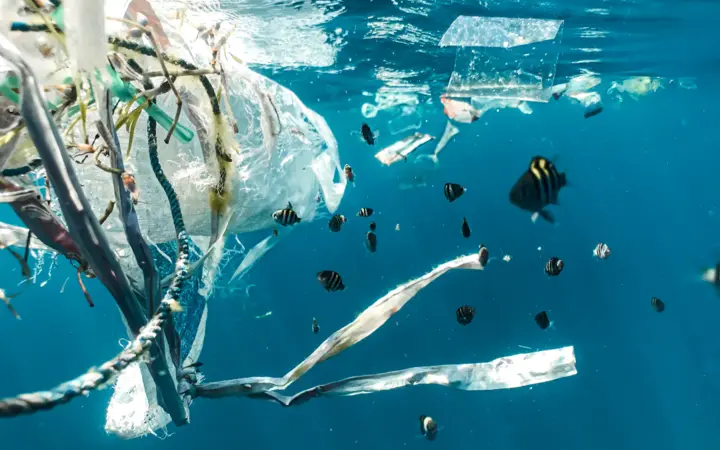You can train your brain to increase your attention span, and here's how
From endless social media navigation, to the temptation of a great sunny day, there are plenty of distractions that prevent us from focusing on your work. It turns out that human brains live the moment for just over half of our waking hours, and the other half of the time we spend outside of the moment we live thinking about something else. Unfortunately, mindfulness can occur at inopportune moments, such as when your boss gives a presentation and asks you a question, or in a lecture. Fortunately, there are habits you can adopt if you want to increase your attention span and concentration for more than half of your day.
Show key points
- Our minds are often distracted, with nearly half of our waking hours spent thinking about things unrelated to the present moment.
- Attention is not a single mental function but a combination of processes that filter and direct our focus toward meaningful stimuli in our environment.
- Internal factors like sleep deprivation, boredom, and frustration significantly reduce our ability to maintain attention on a task.
- ADVERTISEMENT
- External distractions such as noisy workspaces and constant notifications from emails and social media can greatly interrupt focus.
- Training your brain through specific habits—like limiting phone use, scheduling focus periods, and practicing mindfulness—can improve attention span.
- Physical and mental well-being, including regular sleep, hydration, exercise, and even meditation, plays a crucial role in enhancing concentration.
- Simple strategies like sitting at the front of a room, listening to classical music, and handwriting notes can help sustain attention in learning and work settings.
What do we mean by "attention" and "attention span"?

We use the word "attention" as if it refers to a specific aspect of psychological or brain function. But in psychology, it's an umbrella term that refers to a variety of processes and mechanisms that influence the information you receive from the outside world, processed, and affect your thinking. It refers to the ability to consciously choose certain things in the environment to address. For example, as I sit here reading the article, I focus on the text in front of me, ignoring the second computer screen on my left, the things on my desk, my cell phone, the clock hanging on the wall, the shouting of the children... Our "attention span" is the amount of time we can maintain that attention on a particular task before we get distracted or turn to something else we think about, which can make us less productive.
Recommend
What are some of the factors that affect our attention span?

Increasing your ability to concentrate requires dealing with internal and external factors.
Internal factors that affect attention span: Your brain can lead you to shift from one task to another. These factors include:
Lack of sleep: We are a chronically hyponomic society. Most people experience a lack of sleep during the week and hope to make up for it over the weekend. Try reading something difficult in the early afternoon. If you start falling asleep within five minutes of trying to read, you really need more sleep. You may be tempted to treat this with caffeine, but caffeine won't help your brain process and store information more effectively.
Frustration and boredom: After you've been working on a task for a while, especially if it's going slowly, you start to feel like you have to do something else. Boredom and frustration are the brain's way of alerting you that you may be wasting precious energy on something unproductive. However, there are many tasks at work that are really difficult or boring and you need to stick to them despite any frustration or boredom you may feel. If you give in to these feelings, you'll learn to associate these negative emotions with stopping the task.
External factors that affect attention span: Of course, the modern world is full of things that catch your eye. External factors include:
Crowded office environments: There are conversations going on around you, not to mention the random noise from the people passing by.
Email, social media and more: We trained ourselves to check our email, social media and phone several times an hour, because we were rewarded with new information. Your brain recognizes what actions you normally perform and how often you do them. As a result, if you check your phone or email several times an hour, every 20 minutes or so your brain will interrupt everything you do to remind you that it's time to check again.
16 tips to increase your attention span:

1- Create a strategic daily schedule: The more detailed the schedule, the better.
2- Train your brain to check email etc. less at first, and note how long you can usually focus on one task and what tempts you to do something else. Then start trying to do these things less often and at longer intervals.
3- Keep distractions out of reach: If your phone is at arm's distance from you, your hand is likely to reach out to it, so put it out of your reach when you're working on something important, and close browser tabs that contain your email and social media profiles.
4. Pay attention to your feelings before switching from one thing to another: For example, you may find that you check your email when you're a little frustrated with the task at hand. Train yourself to associate this feeling with a more desirable action, such as working on the task for another five minutes first. Over time, you'll stay focused without even having to think about it clearly.
5- Get enough sleep: This will help you improve both your memory and your concentration, because a relaxed brain is a stronger brain.
6- Discover the most productive time of day: Invest these hours (early morning, bedtime...) to accomplish as much as possible.
7- Meditation: Meditation is one of the best ways to improve your concentration, because it is basically a mental training for attention.
8- Sports: Even brisk walking will do the trick, as physical activity increases cognitive control.
9- Stay hydrated: Dehydration is not only bad for your body, but also for your attention span. Drink plenty of water.
10- Sit at the front of the room: this will force you to participate in the discussion.
11- Ask questions: Be vigilant by planning to ask at least one good question.
12- Listen to music: Classical music helps attention.
13- Drinking tea: Coffee may make you alert, but tea can help you pay attention because it contains an amino acid that has been shown to directly affect the areas of the brain that control attention.
14- Take notes by hand: If you are trying to pay attention at a meeting or conference, take notes with pen and paper.
15- Take breaks: Taking breaks to receive mail, have a snack, or just stretch your legs can stimulate your energy.
16- Practice gradually: and treat yourself gently.
![]()
How to build friendships in the workplace while staying professional
Having friends at work can boost happiness, motivation, and performance. Simple moments like coffee breaks or team meals can spark real connections. While workplace friendships can enrich your daily life, it’s key to set clear boundaries to avoid issues like gossip or favoritism. more- ADVERTISEMENT
![]()
How food and pH affect the action of drugs in the body
How food and pH affect the action of drugs in the body more- ADVERTISEMENT
![]()
Hospice of the King's Assistant... Masterpieces of art and color harmony in Kermanshah
The King’s Assistant Hospice in Kermanshah, a Qajar-era gem, shines with vivid tiles and graceful arches. Built for religious ceremonies and tribal reconciliation, it also holds tales of conflict, peace, and deep-rooted Persian hospitality. Today, it stands as a museum and a beautiful reminder of cultural and spiritual legacy. more- ADVERTISEMENT
![]()
The battle that every man fights but most of them don't discuss it
Men silently fight internal battles shaped by stress, depression, and rigid masculinity norms. Suppressing emotions and fearing judgment, they often hide their struggles. True strength lies in embracing vulnerability, fostering self-worth, and building open, supportive connections to break free from isolation and unrealistic expectations. more- ADVERTISEMENT
![]()
Sayyeda Zeinab Shrine: A holy shrine with magnificent architecture
Sayyeda Zeinab Shrine: A holy shrine with magnificent architecture more- ADVERTISEMENT
![]()
Our cosmic neighborhood may be ten times larger than we thought.
A massive discovery suggests our Milky Way may belong to a cosmic structure far bigger than we thought—possibly ten times larger than the Laniakea supercluster. Galaxies travel like rivers in a gravity basin, flowing toward the enormous Shapley concentration, challenging everything we thought about the universe’s scale. more- ADVERTISEMENT
![]()
The Rise of the Reds from the Ashes: The Epic Story of Liverpool Football Club's Triumphs and Setbacks
Liverpool FC’s journey is one of passion, heartbreak, and glory. From humble beginnings in 1892 to conquering Europe under Klopp, it’s the setbacks, spirit, and resilience that make fans fall in love. At Anfield, through every triumph and tragedy, the Reds never walk alone. more- ADVERTISEMENT
![]()
Tranquility and Beauty in Djerba Island in Tunisia
Djerba, or the "Island of Dreams," enchants with its pristine beaches and rich history. Combining the charm of the Mediterranean, its multicultural heritage, and the spirit of local life, it is an ideal destination for relaxation and adventure amidst breathtaking natural landscapes and authentic cultural experiences. more- ADVERTISEMENT
![]()
Saving our seas: Can we remove plastic pollution?
Plastic pollution is everywhere—from oceans to our drinking water. Ocean cleanup efforts like The Ocean Cleanup aim high but also come with side effects, including harming marine life and adding to carbon emissions. The real solution? Stop single-use plastic at the source before it ever reaches the sea. more- ADVERTISEMENT
![]()
75% of the global diet is produced by just 12 plants and 5 different animals
Our diets rely on just a few crops, making them fragile and less nutritious. Embracing lesser-known, diverse foods like millet and winged beans can boost health, support farmers, and protect against climate and crop threats. more- ADVERTISEMENT





















